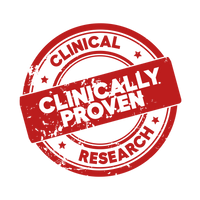Think about the connections we make on a daily, hourly, or minute-by-minute basis. They’re constant and oftentimes unconscious. The brain is incredibly powerful, making connections between thoughts, concepts, and ideas at a rapid fire pace that most of us can’t even comprehend. Connectivity puts a name to the connections the neurotransmitters in our brains make. It explains how we process information and use that information to operate in everyday life.
Unfortunately, brain health and connectivity aren’t in infinite supply. There are many components that affect connectivity and cognition, some of which include environment and genetics. Natural supplements may offer a viable solution for restoring connectivity, putting us on a path toward a stronger, smarter, more alert future. The key is to determine what those supplements are, how they work, and how they can benefit you.
What are Natural Supplements for Connectivity?
Natural supplements for brain connectivity are simply ways that could enhance the processes that already occur in your neural pathways. These supplements increase the amount of beneficial nutrients that may improve functions of the brain related to motor skills, memory, information processing, productivity, and reaction time.
These “cognitive enhancers” also go by the name nootropics. Said to improve memory, increase mental alertness and concentration, and boost energy levels and wakefulness, many nootropics naturally occur in certain foods and herbs like Ginkgo Biloba and American Ginseng. Caffeine is also considered a nootropic, which makes taking Tinc especially beneficial for those looking for a natural connectivity supplement.
Why Use Natural Supplements for Connectivity?
There are plenty of reasons to opt for the natural vs. synthetic route when it comes to supplements. Natural supplements are preferable to synthetic alternatives because they increase what either already exists in your body or things that you naturally get from food. Many people prefer natural supplements to synthetic options, as the latter may come with stimulatory effects and other unpleasant side effects.
The Science Behind Natural Supplements for Connectivity
Research shows a strong correlation between an increase in nootropic consumption and connectivity. Substances like Brain Derived Neurotrophic Factor (BDNF) could help overall brain health in a number of ways, including prevention of neurological conditions, improved focus and concentration, better attention span, reduced mental fatigue, and so much more.
Scientific studies also show a connection between coffee fruit consumption and increased BDNF levels in humans due to the unique polyphenolic composition of the supplement. Other research points to connections between multivitamins, zinc, polyphenols, omega fatty acids, and probiotics and an increase in learning, spatial memory, and cognitive function.
Key Natural Supplements for Connectivity
There’s no question as to the benefits of supplementing for connectivity. The next step is simply to identify the best natural supplements to get the results you’re looking for.
B Vitamins
All letters of the alphabet have a place in your vitamin regimen, but B vitamins are especially important for connectivity and brain health. B vitamins may contribute to cognitive function and could help prevent cognitive decline. Wondering what vitamins are good for mental fatigue? Vitamin B9 is said to be beneficial for mental fatigue. Additionally, Vitamins B3 (Niacin) may help support neurotransmitters and cellular communication.
Curcumin
This plant-derived polyphenolic compound is said to improve BDNF levels and may simultaneously increase levels of the brain neurotransmitters serotonin and dopamine. Some people wonder what vitamin is a natural antidepressant. While there is no hard evidence to support the fact that Curcumin is exactly that, it may be comparatively effective as some prescription for managing symptoms of depression.
Curcumin may also be helpful for memory loss, as research suggests that it could help prevent amyloidosis in the brain. Amyloidosis is the buildup of amyloid (an abnormal protein) in an organ. An excess of amyloids in the brain leads to plaque, which causes brain cells to die. This could lead to Alzheimer’s diseases if the toxic proteins don’t get broken down by enzymes quickly enough.
Ginseng
Another herbal supplement, ginseng may be useful for stress-related depression and degenerative brain conditions like Alzheimer’s disease. Studies suggest a connection between crude ginseng extracts and better performance on stimulant-motivated tasks. There also appears to be a connection between ginseng consumption and reduced anxiety, although this needs to be studied further.
Choline
Used for mood regulation, memory, and muscle control, choline is a vital component of forming the membranes that surround our bodies’ cells. The importance of choline has been studied in relation to cognitive function, with results suggesting a connection between choline intake and lower incidences of dementia.
Caffeine
The benefits of caffeine are known to many, typically through anecdotal evidence. Still, there’s real science behind what caffeine can do. Yes, caffeine stimulates the brain and central nervous system to promote alertness but some studies show that it could also improve memory, mood, and overall brain function. That’s certainly good news for all the coffee drinkers out there, but it’s even better for those interested in reaping its long term benefits. Extracts like those found in coffee fruit supplements stand to offer promising results.
Ginkgo Biloba
With a long history in ancient remedies, ginkgo biloba is widely used for its effects on memory and focus. This herbal supplement works by potentially increasing blood flow to the brain.
Fish Oils
Docosahexaenoic acid (DHA) and eicosapentaenoic acid (EPA) are two types of omega-3 fatty acids (aka fish oils) that may offer cognitive benefits. DHA has been linked to improving thinking skills, memory, and reaction time while EPA may help with mental health for mood improvement and depression.
How to Choose the Right Natural Supplement for Connectivity
Equipped with the research and science, it’s now time to choose the best natural supplement for connectivity. The way to do this is to employ strategy and logic. Look at the natural supplement you’re considering and evaluate it from an objective standpoint. Review the ingredients, the company, and its manufacturing processes. Also check out customer testimonials to see what actual consumers have to say about the product.
Do all of this while assessing your goals for using the supplement. Do you need it to be practical? Do you care about the cost? How will you integrate it into your life? All of these are factors for consideration.
How to Incorporate Natural Supplements for Connectivity Into Your Routine
Once you’ve determined which type of natural supplement you want to take, the next step is to work it into your life as effortlessly and seamlessly as possible. Remember, the best supplements will be assets and should make your life even better. If you’re looking for a simple and easy way to bring a natural supplement for connectivity into your routine, we suggest Tinc. To use Tinc, all you need to do is add 1 serving to your beverage of choice (smoothie, coffee, juice, water, etc.) to reap the benefits!
Potential Side Effects and Precautions of Natural Supplements
While natural supplements are designed to be safe, the fact of the matter is that all supplements come with some degree of risk. There are potential side effects and precautions to be aware of when taking supplements of any kind, even natural ones. Prior to starting a supplement regimen, it’s important to learn about its possible side effects and weigh the pros and cons accordingly. Also be sure to speak with your healthcare provider before starting any supplement routine, natural or not.
Frequently Asked Questions
Find answers to common questions about natural supplements for connectivity here. A few that may be top of mind include:
Yes, supplements for connectivity are considered safe if they are taken under the guidance of a healthcare professional and as per the instructions provided by the manufacturer.
That depends on the supplement you take, your body composition, other supplements you may be taking, and a variety of other factors. Some people may start to see results immediately. For others, it may take up to a month.
Some natural supplements may interact with medications in certain circumstances. Always consult with your healthcare professional prior to starting a supplement regimen.
Diet, exercise, and daily habits may enhance the effects of natural supplements for connectivity. Brain puzzles, word games, cardiovascular exercises, and a diet rich in fruits, vegetables, healthy fats, and lean proteins may complement your efforts.
The path to improving brain health isn’t always straightforward but there are things you can do to go in the right direction. Step 1 is to educate yourself on what you might be taking and to get clear about your intentions. Then start doing the research about the best natural supplements for your goals and consult with a trusted healthcare professional. Set your sights on improved connectivity and see the opportunities that unfold. It all starts with the right natural supplement: Tinc. Order your Tinc Daily Brain Boost today!





